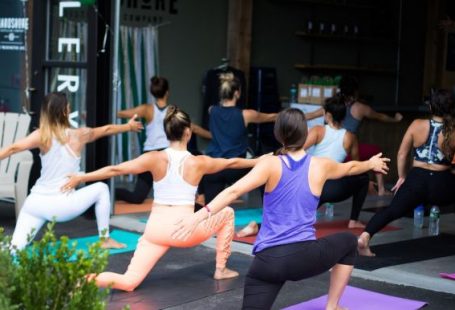Sports-specific training is the key to unlocking your full potential as an athlete. Whether you’re a professional athlete or a weekend warrior, tailoring your training to the specific demands of your chosen sport can make a world of difference in your performance. In this article, we will explore the importance of sports-specific training and provide tips on how to incorporate it into your workout routine.
Understanding the Demands of Your Sport
Before diving into sports-specific training, it’s important to have a clear understanding of the demands of your sport. Each sport requires specific skills, physical attributes, and movement patterns. For example, a basketball player needs explosive power, agility, and quick reflexes, while a long-distance runner needs endurance and cardiovascular fitness. By analyzing the demands of your sport, you can identify the areas that need improvement and design a training program that targets those specific needs.
Focus on Functional Movements
Sports-specific training focuses on improving the functional movements required by your sport. Functional movements are those that mimic the actions you perform during your sport. For example, a tennis player may incorporate exercises that simulate the motions of a forehand or backhand swing. By training these movements, you can improve your technique, strength, and coordination, leading to better performance on the field or court.
Incorporate Sport-Specific Drills
In addition to functional movements, incorporating sport-specific drills into your training can take your performance to the next level. These drills are designed to replicate the specific situations and challenges you’ll encounter during competition. For example, a soccer player may practice shooting on goal from various positions, or a golfer may work on their putting technique. By repeatedly performing these drills, you can improve your skills, build muscle memory, and develop the mental toughness needed to excel in your sport.
Balance Strength and Conditioning
Sports-specific training should also include a balance of strength and conditioning exercises. Strength training helps build the muscles needed for explosive power and stability, while conditioning exercises improve cardiovascular fitness and endurance. Depending on your sport, you may need to emphasize one area more than the other. For example, a football player may focus more on strength training, while a marathon runner may prioritize conditioning. However, it’s important not to neglect either aspect, as both are crucial for optimal performance.
Seek Professional Guidance
To get the most out of your sports-specific training, it’s beneficial to seek guidance from a professional. A qualified coach or trainer can assess your strengths and weaknesses, design a customized training program, and provide feedback and support along the way. They can also help you avoid common pitfalls and injuries associated with improper training techniques. Investing in professional guidance can significantly enhance your training and help you reach your full potential as an athlete.
Stay Consistent and Patient
Sports-specific training is not a quick fix or overnight solution. It requires consistency, patience, and perseverance. It’s important to stick to your training program, even when progress seems slow or setbacks occur. Remember that improvement takes time, and every small step forward brings you closer to your goals. Stay focused, stay motivated, and trust the process.
In conclusion, mastering your sport requires sports-specific training. By understanding the demands of your sport, focusing on functional movements, incorporating sport-specific drills, balancing strength and conditioning, seeking professional guidance, and staying consistent and patient, you can unlock your full potential as an athlete. So, lace up your shoes, grab your gear, and get ready to take your game to the next level through sports-specific training.





